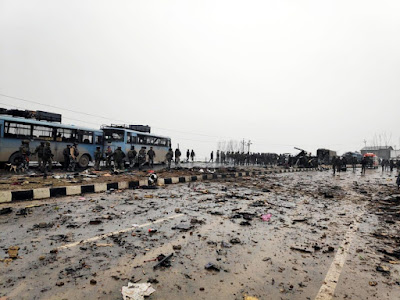1. Forecasting
2. Decision-making
3. Planning
4. Organization
5. Motivation
6. Control
7. Coordination
8. Evaluation
9. Recording and
reporting
10. Supervision
1. Forecasting:
It is a systematic
assessment of future conditions by collecting all sorts of information about
the present position of the system, its present and expected resources and
trying to form a picture in terms of the accepted Philosophy in a particular
country to arrive at a fruitful forecast.
2. Decision-making:
Decision-making is a key
factor in educational management as here we have to think of generations which
will be affected by the policies decided. Having considered various alternative
and consequence of each course of action, a suitable course of action must be
determined. Guess work, arbitrary exercise of authority, ill considered hasty
decisions should have no place in educational management. The following points
must be borne in mind while deciding that the:
(a) Course of actions
should be simple and easily understood by all concerned;
(b) Standards for
targets must be laid down; and
(c) Goal must be clear.
3. Planning:
The plan should be
flexible. The very existence of variables and uncertainties make
decision-making and planning a necessity. There should be enough scope of
change to cater for any unforeseen situations. There are many variables - the
priorities may change due to unforeseen circumstances; equipment and grants may
not become available as expected; personnel may be posted out or they may
proceed on leave; all these variable contributing to the non-implementation of
decisions.
4. Organization:
It is the combination of
necessary human effort, material equipments in systematic and effective
correlation to accomplish the desired results. Under educational
administration, we organize:
(a) Ideas and principles
into school systems, curricular and co-curricular activities, time schedules,
norms of achievement and the like;
(b) Human beings into
schools, classes, committees, groups, school staff, the inspecting staff.
(c) Material into
buildings, furniture and equipment, libraries, laboratories, workshops, museums
and art galleries.
5. Motivation:
Involvement in deciding
policies and plans help in motivation. The term motivation aims to make the man
to be cheerfully willing to do the job we want him to do. Face to face
communication is quite useful if organization members are to be motivated to do
their best. Communication, down, up and across is also of great importance to
the motivation of organization members.
6. Control:
Effective control is an important element in educational
administration. The administrator must constantly check on his terms and
his own performance vis-a-vis the standards laid down. He needs to take
corrective action to the form of adjustments to the physical environment of
work, modification and addition of materials and methods or abilities and
motivation review of the personnel in terms of their spirits.
7. Cooperation:
It is required of all
the elements the persons, material and ideas, knowledge and principles and so
to interweave them as to achieve a common objective and a single effect. The
administration should look into the: (a) relations among people, (b) allocation
of tasks, and (c) division of labour.
8. Evaluation:
Evaluation is a good way
to find out the success or failure of a project. Good measures are required to
find out the reasons why it failed or succeeded, which steps in the process
were most successful, what should have been done to improve the action and what
should be done differently at the next trial.
9. Recording and reporting:
Recording and reporting
are essential elements of educational management which is answerable to the
parents, the higher authorities, the society etc.
10. Supervision:
The purpose of
supervision is to bring about a continuing improvement in the instructional
programme. Cox and Langfitt write, "Management executes, directs;
supervision advises, stimulates, explains, leads, guides and assists. Both
plan, both diagnose, both inspect, but management decides and orders execution,
while supervision helps to decide and assist in improving instruction."


No comments:
Post a Comment